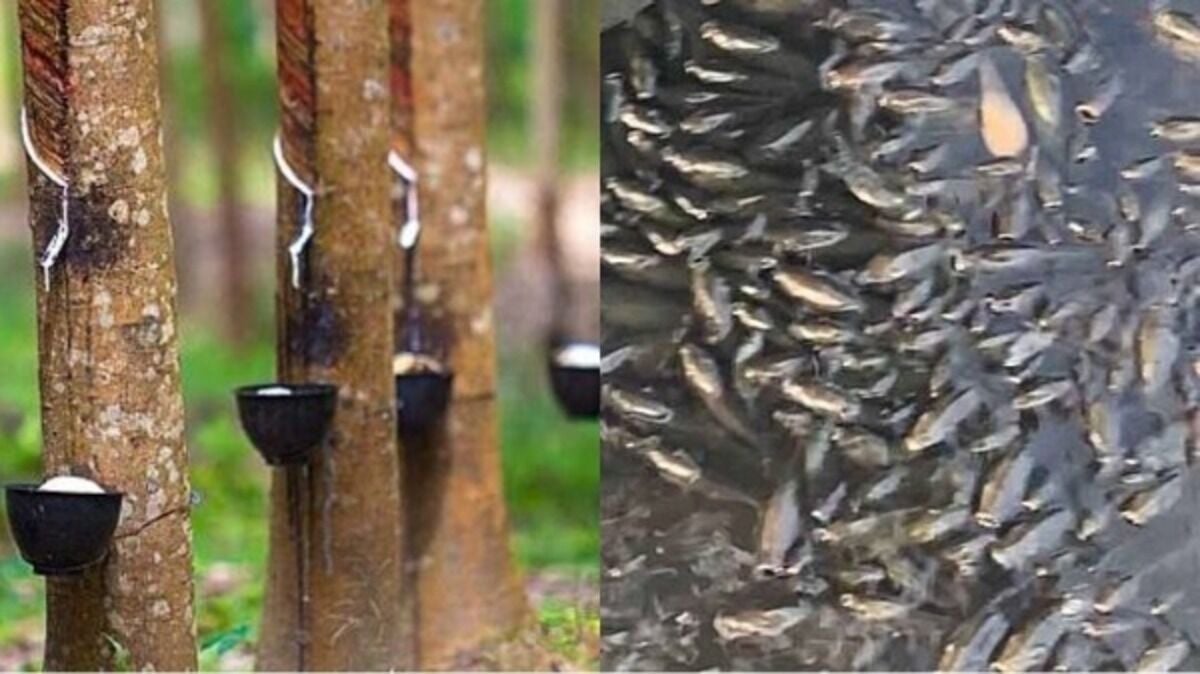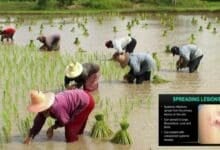Thailand rubber farmers oppose fund use for fish purchase

Rubber farmers in Prachuap Khiri Khan raised concerns over the Ministry of Agriculture’s decision to use funds from the Rubber Authority of Thailand (RAOT) to buy black-banded trevally fish at 15 baht per kilogramme. The farmers question the fairness and appropriateness of this policy.
Rungroj Ratanakaw, a resident of Thong Mongkol subdistrict in Bang Saphan district, voiced his disagreement with the ministry’s policy. He stated that using funds from the RAOT to support the Department of Fisheries in purchasing large quantities of black-banded trevally fish seems unreasonable. The designated purchase price is 15 baht per kilogramme which is expected to require a significant budget.
Rungroj believes that using the fish for fertiliser or animal feed may not be cost-effective. He questioned whether this policy aligns with the intended purpose of the fund and whether it is fair to rubber farmers across the country, regardless of whether they have legal documentation for their rubber plantations.
Rungroj pointed out that the funds to be used for buying the fish are derived from the cess collected by the RAOT. This cess is deducted from the sales of rubber exported by all farmers, both those with and without legal documentation for their land.
He also highlighted a perceived injustice in the fund’s allocation. The fund is supposed to compensate those who cut down rubber trees to plant other crops. However, those who plant alternative crops on undocumented land do not receive this compensation, even though the fund comes from all rubber-producing trees in the country. If the fund cannot support all rubber farmers, it should not be diverted to other purposes.
Reports indicate that the cess money, which will be used to buy the black-banded trevally fish, is collected from rubber exporters under Section 5 of the Rubber Replanting Aid Fund Act of 1960. The funds are intended to finance the replacement of low-yield rubber plantations with high-yield rubber varieties.
Fish removal
Nopparat Sitthikasemkit, head of the Fishery Development and Promotion Group at the Prachuap Khiri Khan Fisheries Office, mentioned that the provincial fisheries office is in discussions with relevant sectors to establish purchase points for black-banded trevally at 15 baht per kilogramme.
Additionally, efforts are being made to increase the frequency of fishing operations to remove as many black-banded trevally from water sources as possible, at least four times a month, in heavily infested areas like Pran Buri, Sam Roi Yot, and Kui Buri. In August, 20,000 white sea bass, a predatory fish, will be released.
The rapid spread of black-banded trevally has significantly impacted local fish populations, such as in the Sam Roi Yot area, where native fish species like Trichogaster and climbing perch have drastically declined. Similarly, along the coastal areas, the population of banana shrimp has also decreased.
In response, local communities have been encouraged to turn this crisis into an opportunity by utilising black-banded trevally for various purposes. This includes processing the fish into food, selling it to fishmeal factories for animal feed production, or converting it into bio-fertiliser to reduce agricultural costs, reported KhaoSod.
Latest Thailand News
Follow The Thaiger on Google News:


























